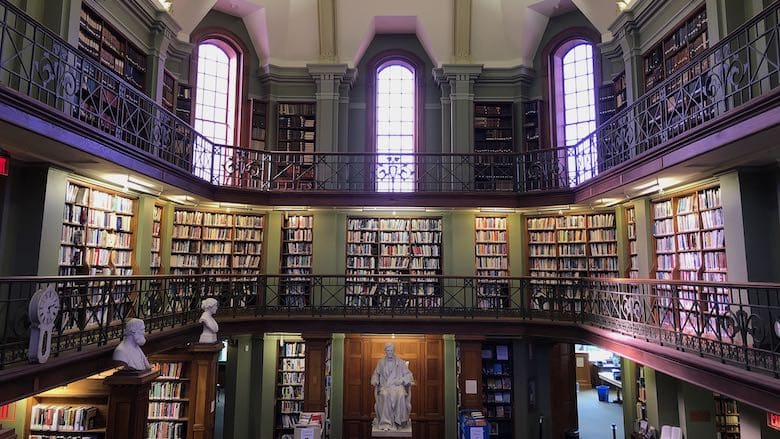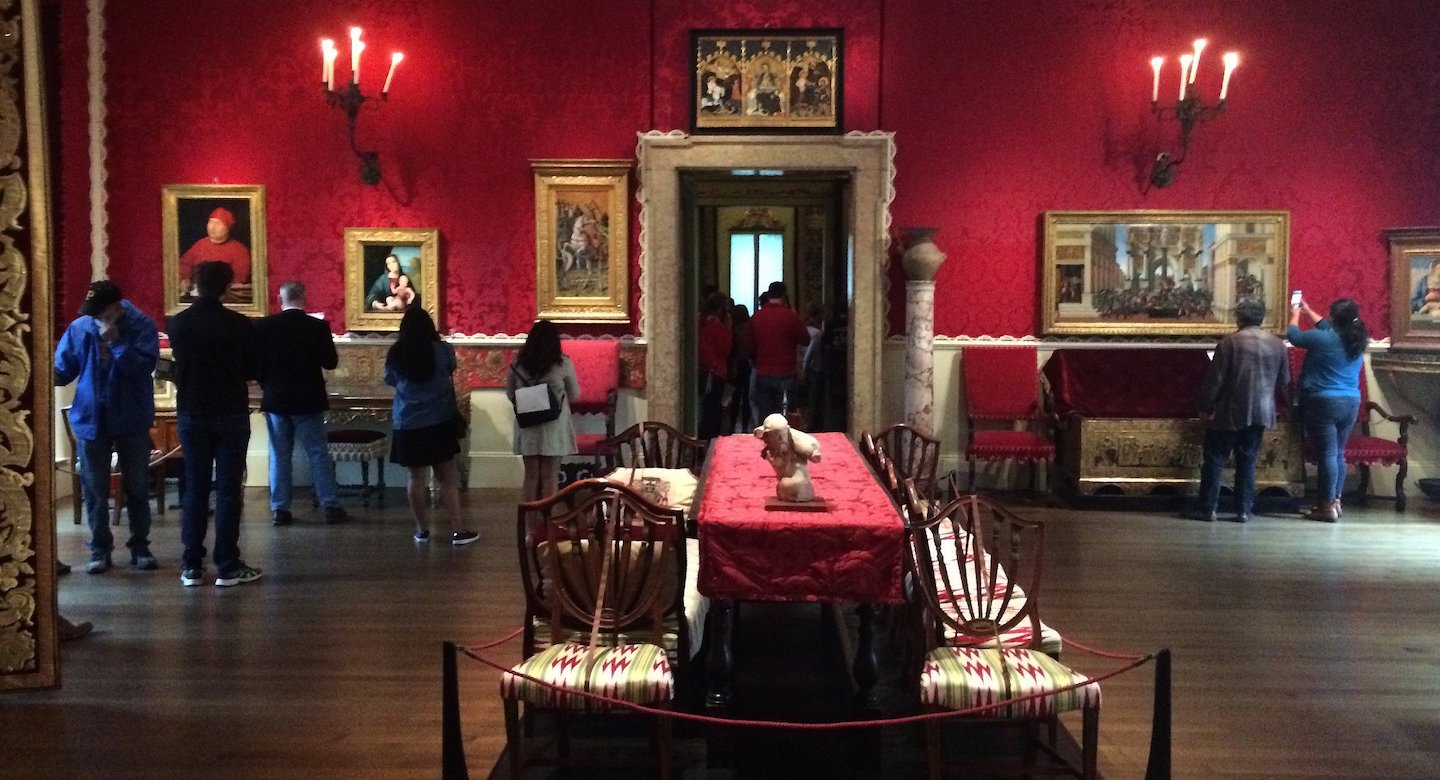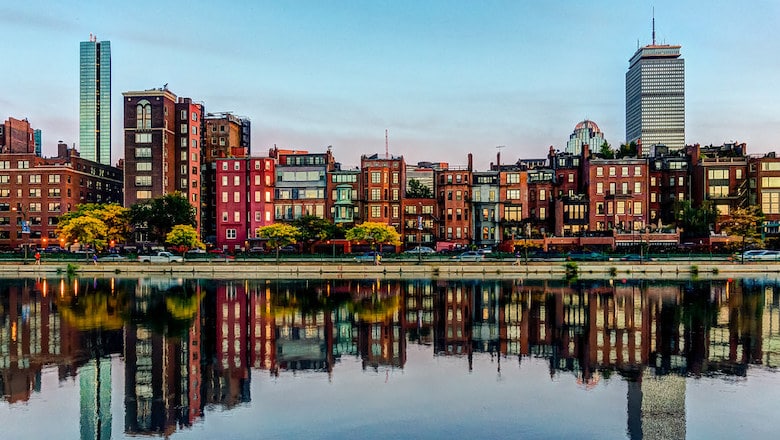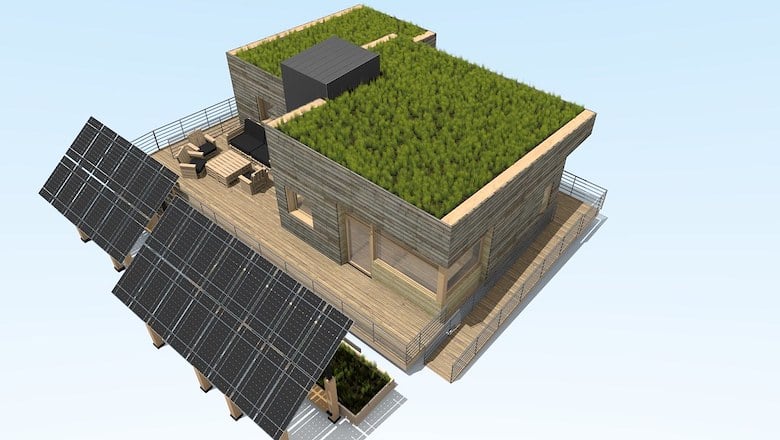Preserving literary history via climate mitigation: a plan for decarbonizing the Concord Free Public Library
Libraries are finding new and innovative ways to endure, structurally and purposefully, for future generations. This New England landmark is carving its path to a carbon-free future.

“She could no longer borrow from the future to ease her present grief.” —Nathaniel Hawthorne
You may find yourself one day wrapped in a blanket, all cozy in your favorite chair by the fire, reading Louisa May Alcott’s Little Women.
As you fret over Jo rejecting Laurie’s proposal of marriage, your mind drifts to 19th-century Concord, Massachusetts, where the literary legends Alcott, Nathaniel Hawthorne, Ralph Waldo Emerson, and Henry David Thoreau lay in permanent rest on a hillside inside the bucolic Sleepy Hollow Cemetery. “Wow, Concord,” you muse, contemplating the town’s prodigies of prose. “What’s in the water?”
Over the past few decades, the Town of Concord, home to the historic Concord Free Public Library, started to record and see firsthand the negative impacts of climate change. As in other parts of the world, intense storms continue to cause flooding and threaten biodiversity; extreme heat during the summer months create health risks for humans and habitats; and sea level rise could wreak havoc on coastal communities. For all its benefits, it’s best to maintain a healthy respect for water’s potential dangers.
Concord Free Public Library (CFPL) has taken the initiative to put efforts of their own to align with the town’s values and goals. The town itself is made up of a majority of marsh and wetlands, increasing its likelihood of flooding when intense storms do arise. Determined to reach climate neutrality by 2030, CFPL is leading toward a more sustainable future.
“Nothing great was ever achieved without enthusiasm.” —Ralph Waldo Emerson
In early 2020, CFPL embarked on a stakeholder-engaged sustainability and climate action planning process to help the Library community align around a shared vision, goals, and strategies. CFPL built their plan on a strong foundation of of climate action and educational opportunities, including partnering with the Concord Municipal Light Plant to update current lighting with more energy-efficient options; developing their Seed Lending Library program; and hosting frequent events for environmental awareness, such as an annual Climate Preparedness Week and a materials management “Zero-Waste Day” each year. The Library also has an on-site flower garden that is not only beautiful, but supports biodiversity, welcoming butterflies and birds.
Given CFPL’s strong community culture around mitigating climate change, it was time to do more—it was time to create a plan. GreenerU’s reputation had preceded it through its sustainability planning work with Concord Academy right around the corner, and so began a similar planning process with CFPL.
GreenerU created a baseline of sustainability and energy data, visited the Library to perform building assessments, and analyzed the Library’s most recent greenhouse gas inventory.
Working with CFPL’s core team of stakeholders—library staff, trustees, community members—GreenerU guided a process to create a strong, customized Sustainability Plan for 2021–2025. CFPL developed eight goals under the categories of outreach and education and built environment and operations. In addition to its aspirations of engaging the broader Concord community in sustainability programming and events, as well as pursuing Sustainable Libraries Initiative certification, one of its most ambitious goals is for its buildings to achieve carbon neutrality by 2030.
“Wildness is the preservation of the world.” —Henry David Thoreau
Using past greenhouse gas emissions inventories, CFPL had assessed options for emissions reduction through renewable energy procurement. They looked into partnering with a firm to conduct and assess possible solar opportunities for the Library. But due to historic district restrictions and not enough available sunlight, they concluded that solar was off the table for the time being.
The Library contacted GreenerU in late 2022 to manage and execute the decarbonization study to provide a recommended path to eliminating the use of fossil fuels and implementing energy-conservation measures in its Main and Fowler buildings. Using building energy use data, GreenerU developed a “business as usual” case and compared that to making infrastructure changes that would electrify all heating and cooling at each location.
Throughout the decarbonization study phases, GreenerU and CFPL stakeholders openly communicated, relayed updates, assessed goals, and held meetings to share project status updates. CFPL’s goal for decarbonization includes purchasing renewable energy, electrifying the heating system, replacing gas boilers with heat pumps, and defining the implementation of the plan in its two branch locations.
A work in progress, a decarbonization plan is currently in its conceptual phase, allowing CFPL to begin gearing up for further action. To get started, though, CFPL plans to install LED lighting upgrades and temperature and lighting controls throughout their two branches.
“Strength and beauty must go together.” —Louisa May Alcott
It’s not likely a coincidence that Concord’s most famous literary contributions came from families of naturalists, transcendentalists, dreamers, and philosophers who laid a strong foundation of a sustainability culture in this New England community. That legacy lives on in the Concord Free Public Library, where great literature and a healthy respect for nature go hand in hand.
As you turn the final pages of Little Women and reflect on how Alcott and her writerly brethren challenged the status quo, think of where CFPL is heading—and how its work toward a carbon-free future could spark change to preserve the magic of libraries across the nation.
—Alexandra DeCecca
GreenerU would love to check out your books and help your library navigate the path to climate neutrality. Contact us to start a conversation.



